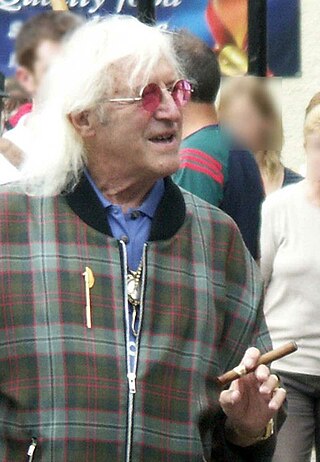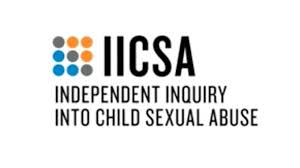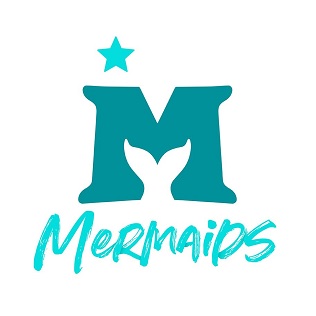Related Research Articles

Child prostitution is prostitution involving a child, and it is a form of commercial sexual exploitation of children. The term normally refers to prostitution of a minor, or person under the legal age of consent. In most jurisdictions, child prostitution is illegal as part of general prohibition on prostitution.

Home Children was the child migration scheme founded by Annie MacPherson in 1869, under which more than 100,000 children were sent from the United Kingdom to Australia, Canada, New Zealand, and South Africa. The programme was largely discontinued in the 1930s, but not entirely terminated until the 1970s.
Child grooming is establishing an emotional connection with a child under the age of consent, and sometimes the child's family, to lower the child's inhibitions with the objective of sexual abuse. Child grooming is also used to lure minor children into various illicit businesses such as child trafficking, child prostitution, cybersex trafficking, or the production of child pornography.

Commercial sexual exploitation of children (CSEC) is a commercial transaction that involves the sexual exploitation of a child, or person under the age of consent. CSEC involves a range of abuses, including but not limited to: the prostitution of children, child pornography, stripping, erotic massage, phone sex lines, internet-based exploitation, and early forced marriage.

Sex trafficking is human trafficking for the purpose of sexual exploitation. It has been called a form of modern slavery because of the way victims are forced into sexual acts non-consensually, in a form of sexual slavery. Perpetrators of the crime are called sex traffickers or pimps—people who manipulate victims to engage in various forms of commercial sex with paying customers. Sex traffickers use force, fraud, and coercion as they recruit, transport, and provide their victims as prostitutes. Sometimes victims are brought into a situation of dependency on their trafficker(s), financially or emotionally. Every aspect of sex trafficking is considered a crime, from acquisition to transportation and exploitation of victims. This includes any sexual exploitation of adults or minors, including child sex tourism (CST) and domestic minor sex trafficking (DMST).

Human trafficking and the prostitution of children has been a significant issue in the Philippines, often controlled by organized crime syndicates. Human trafficking is a crime against humanity.

Margaret Humphreys, is a British social worker and author from Nottingham, England. She worked for Nottinghamshire County Council operating around Radford, Nottingham and Hyson Green in child protection and adoption services. In 1986, she received a letter from a woman in Australia who, believing she was an orphan, was looking to locate her birth certificate so she could get married.

Cambodia is a source, transit, and destination country for human trafficking. The traffickers are reportedly organized crime syndicates, parents, relatives, friends, intimate partners, and neighbors. Despite human trafficking being a crime in Cambodia, the country has a significant child sex tourism problem; some children are sold by their parents, while others are lured by what they think are legitimate job offers like waitressing, but then are forced into prostitution. Children are often held captive, beaten, and starved to force them into prostitution.

Whitney Dean is a fictional character from the BBC soap opera EastEnders, played by Shona McGarty. The character is the ward of long-running character Bianca Jackson and was introduced on 1 April 2008 when Palmer returned to the series after a nine-year absence. Whitney is described by executive producer Diederick Santer as both an equal to, and younger version of Bianca, and is the oldest of Bianca's four children. Whitney was absent from the soap across four weeks in 2012 when McGarty was suspended for repeated lateness. McGarty took a short break in 2017 and Whitney departed on 29 May and returned on 31 July of that year. On 1 June 2018, McGarty filmed her 1,000th episode as Whitney.

Julie Bindel is an English radical feminist writer. She is also co-founder of the law reform group Justice for Women, which has aimed to help women who have been prosecuted for assaulting or killing violent male partners.
Fiona Kennedy Clark, OBE, DL is a Scottish singer, actress, and broadcaster, and the daughter of Scottish and Gaelic singers Calum Kennedy and Anne Gillies. As a child, she appeared with her parents as they performed as a family, and this developed into a successful solo career.

Dame Catherine Fiona Woolf, is a British corporate lawyer. She served as the Lord Mayor of London (2013–14), acting as global ambassador for UK-based financial and business services. She has held and still holds many other significant positions in the City of London.
The Rochdale child sex abuse ring involved underage teenage girls in Rochdale, Greater Manchester, England. Nine men were convicted of sex trafficking and other offences including rape, trafficking girls for sex and conspiracy to engage in sexual activity with a child in May 2012. This resulted in Greater Manchester Police launching Operation Doublet to investigate further claims of abuse with 19 men so far being convicted. Forty-seven girls were identified as victims of child sexual exploitation during the police investigation. The men were British Pakistanis, which led to discussion on whether the failure to investigate them was linked to the authorities' fear of being accused of racial prejudice. The girls were mainly White British.

It emerged in late 2012 that Jimmy Savile, an English media personality who had died the previous year, sexually abused hundreds of people throughout his life, most of them children but some as old as 75, and most of them female. He had been well known in the United Kingdom for his eccentric image and was generally respected for his charitable work, which associated him with the British monarchy and other individuals of personal power.

The Rotherham child sexual exploitation scandal consists of the organised child sexual abuse that occurred in the town of Rotherham, South Yorkshire, Northern England from the late 1980s until present and the failure of local authorities to act on reports of the abuse throughout most of that period. Researcher Angie Heal, who was hired by local officials and warned them about child exploitation occurring between 2002 and 2007, has since described it as the "biggest child protection scandal in UK history". Evidence of the abuse was first noted in the early 1990s, when care home managers investigated reports that children in their care were being picked up by taxi drivers. From at least 2001, multiple reports passed names of alleged perpetrators, several from one family, to the police and Rotherham Council. The first group conviction took place in 2010, when five British-Pakistani men were convicted of sexual offences against girls aged 12–16. From January 2011 Andrew Norfolk of The Times pressed the issue, reporting in 2012 that the abuse in the town was widespread and that the police and council had known about it for over ten years.

The Independent Inquiry into Child Sexual Abuse (IICSA) in England and Wales was an inquiry examining how the country's institutions handled their duty of care to protect children from sexual abuse. It was announced by the British Home Secretary, Theresa May, on 7 July 2014. It published its 19th and final report on 20 October 2022.
The Aylesbury child sex abuse ring was a group of five men who committed serious sexual offences against two under-aged girls in the English town of Aylesbury, Buckinghamshire. In July 2015, they were found guilty of offences including rape and child prostitution over a period extending from 2006 to 2012. The child protection charity Barnardo's stated that it had worked with the two girls in 2008 and referred one of them to Buckinghamshire County Council as in danger of child sex exploitation. The council did not respond adequately and, following the convictions, apologised to the two girls for its failure to protect them. It has now instituted a Serious Case Review to examine those failures.
Elizabeth A. Kelly CBE is a British professor and director of the Child and Woman Abuse Studies Unit (CWASU), London Metropolitan University, former head of the, now defunct, Women's National Commission, and co-chair, along with Marai Larasi, of the End Violence Against Women Coalition.

Sex trafficking in the United States is a form of human trafficking which involves reproductive slavery or commercial sexual exploitation as it occurs in the United States. Sex trafficking includes the transportation of persons by means of coercion, deception and/or force into exploitative and slavery-like conditions. It is commonly associated with organized crime.

Mermaids is a British charity and advocacy organisation that supports gender variant and transgender youth. It also provides inclusion and diversity training. Mermaids was founded in 1995 by a group of parents of gender nonconforming children and became a charitable incorporated organisation in 2015.
References
- 1 2 "Parents' fight against pimping". BBC News. 10 May 2004. Retrieved 6 September 2013.
- 1 2 3 4 "Ivison v. the United Kingdom". The European Court of Human Rights. Retrieved 6 September 2013.
- 1 2 "Irene Ivison Obituary". The Guardian. 2 November 2000. Retrieved 6 September 2013.
- ↑ The Mirror. "I thought she had fallen in love for the first time – but he was a pimp and it ended her life; A story that every parent must read; She said she was miserable and wouldn't be alive for much longer". Gale, Cengage Learning. MGN LTD.
- ↑ Prince, Rosa (31 January 1998). "Men to get lectures on kerbing their sex habits" . The Independent. London. Archived from the original on 25 May 2022. Retrieved 13 September 2013.
- ↑ Ivison, Irene (1997). Fiona's Story. UK: Virago Press Ltd. ISBN 1860491995. ASIN 1860491995.
- ↑ "Irene Ivison: Emma Humphreys Memorial Prize" . Retrieved 13 September 2013.
- ↑ "The Scale of the Problem". BBC Panorama. 26 March 2008. Retrieved 13 September 2013.
- ↑ "Ivison V. UK Admissibility Decision". Rosalind English. Retrieved 13 September 2013.
- ↑ Loughten, Tim. "Tackling child sexual exploitation must be a priority, says minister". Department for Education. Retrieved 13 September 2013.
- ↑ "Funding fear for Leeds grooming charity". BBC News. 16 August 2011. Retrieved 13 September 2013.